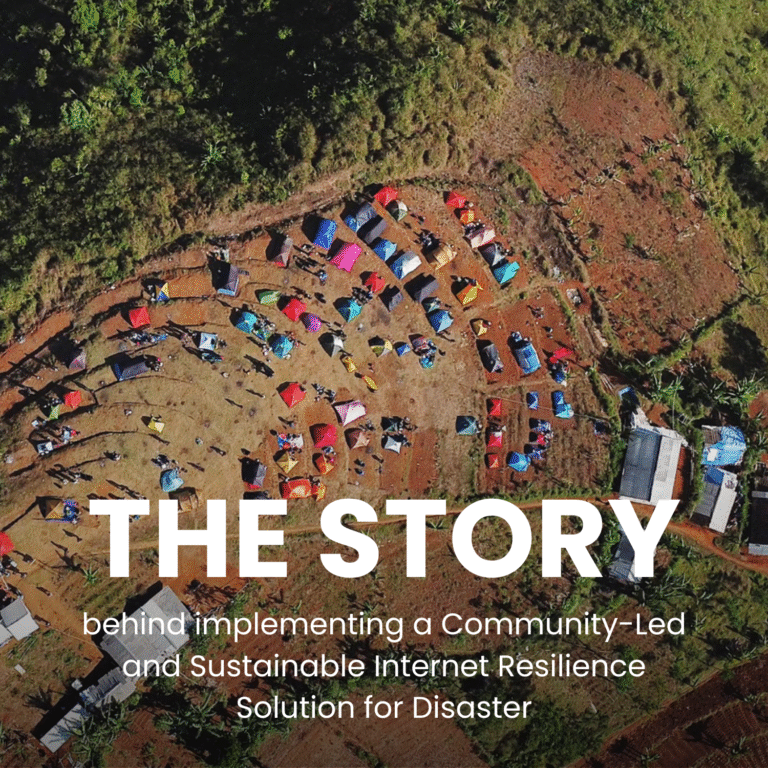
The story behind implementing a Community-Led and Sustainable Internet Resilience Solution for Disaster
Imagine growing up with the fear of living in an area prone to heavy rains, flooding, landslides, and sometimes earthquakes, and where cell service and
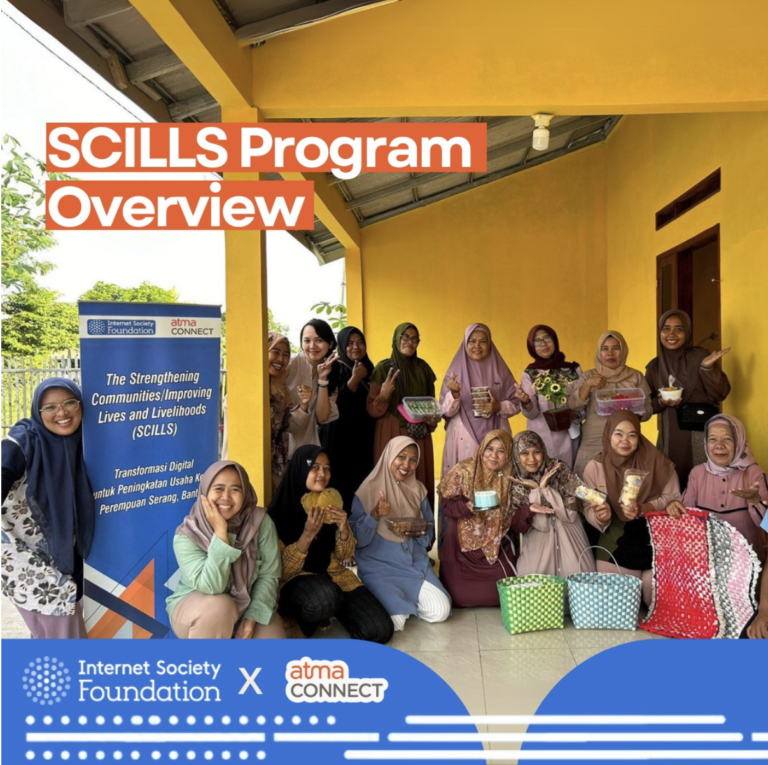
Empowering Entrepreneurs: Stories of Impact and Transformation in Improving Economic Opportunity for Women
Atma Connect, supported by the Internet Society Foundation, has had recent successes in improving economic opportunity for women entrepreneurs. Through an innovative 24-month program 240
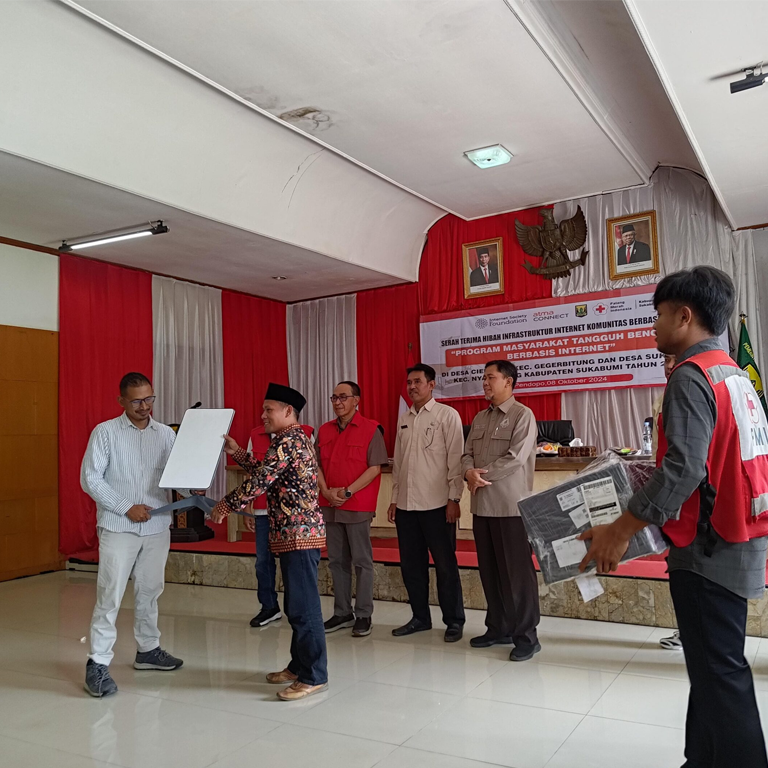
Atma Connect and Partners Enter Final Phase of Internet Resilience Work and Participate in “Handover” to Villages
Project: Implement community-led, sustainable technology solutions in two villages in Indonesia. Funded by: Internet Society Foundation (ISF) Resiliency Grant Program Objective achieved: Developed and transitioned
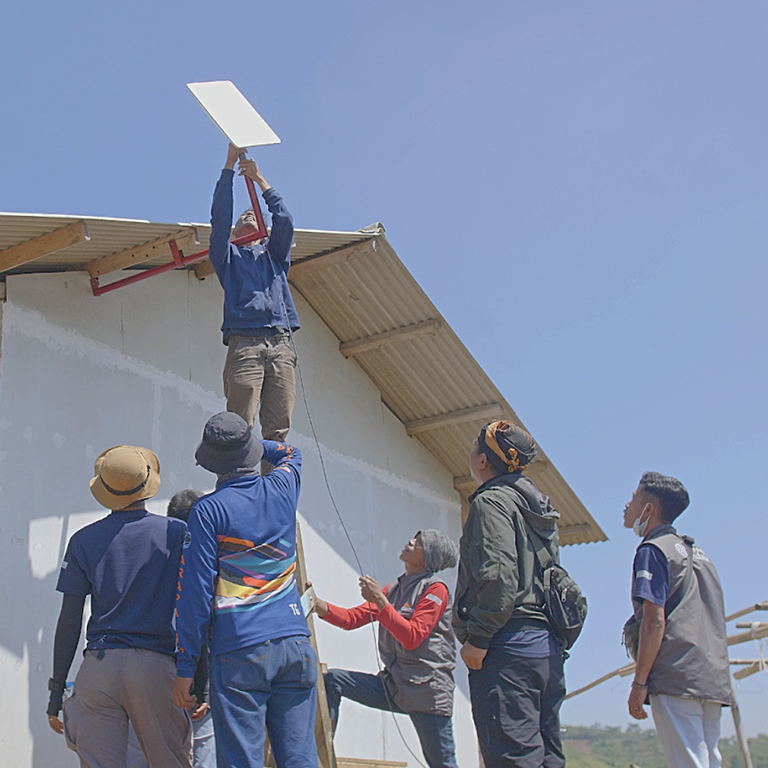
Highlights: Atma Connect on Disaster Resilience and Internet Resilience
Project: Implement community-led, sustainable technology solutions in Sukabumi, Indonesia. Funded by: Internet Society Foundation (ISF) Resiliency Grant Program Objective achieved: Develop a replicable model of
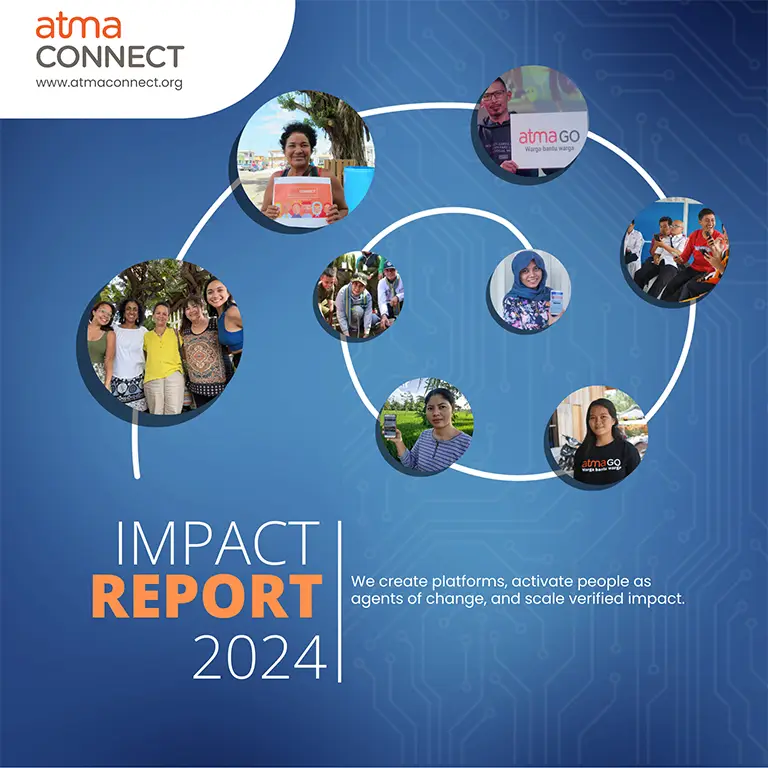
Announcing the Atma Connect Impact Report 2024
To provide you with a quick recap of 2023 and a look ahead, see Atma Connect’s new impact report. You’ll find highlights of Atma’s work
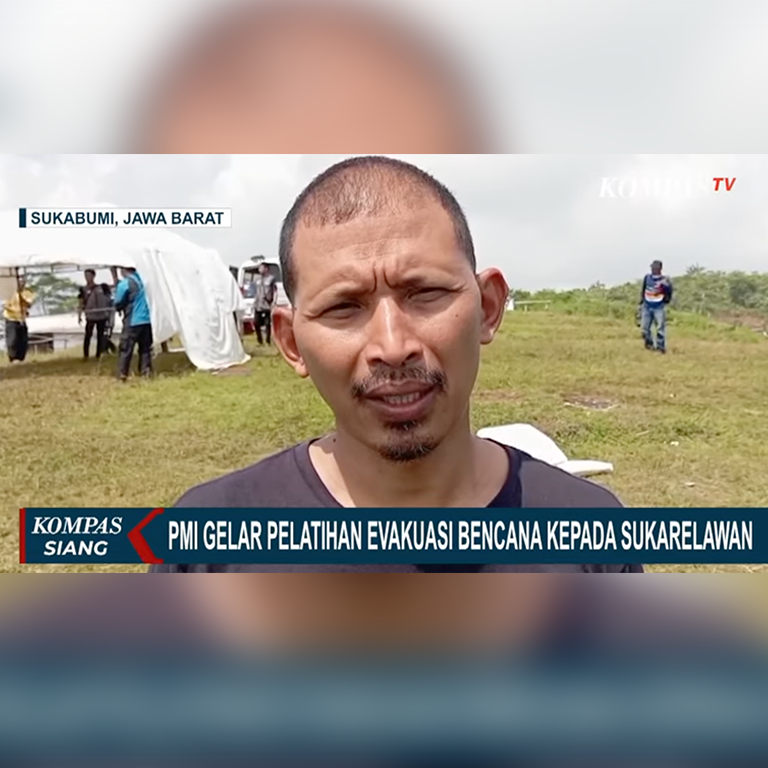
Atma Connect and Indonesian Red Cross Hold Disaster Evacuation Training
Atma Connect and the Indonesian Red Cross, known as PMI, held disaster evacuation training with volunteers in Sukabumi, Indonesia, with Atma and the Internet Society
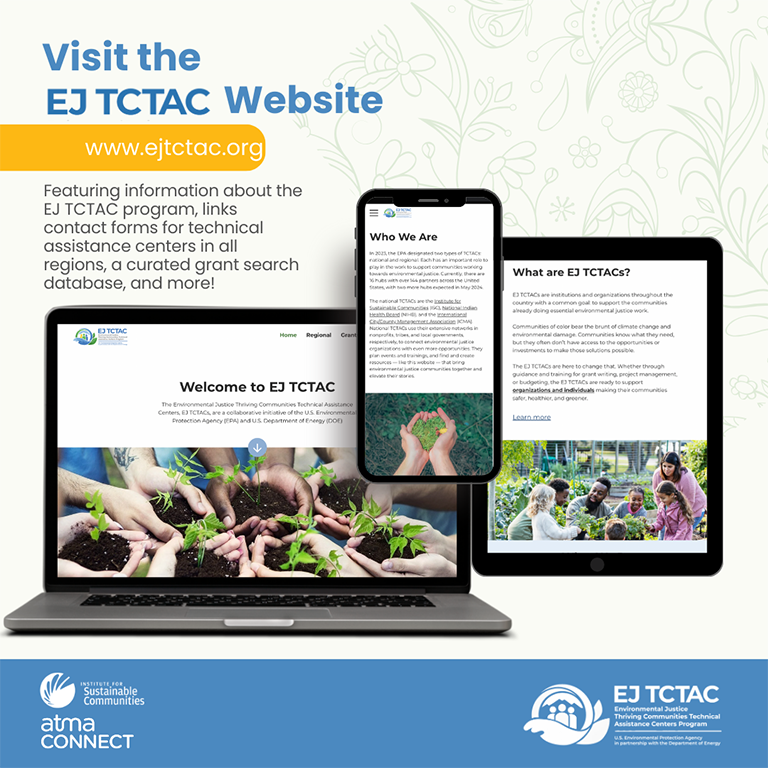
Atma Connect Creates New Platform to Connect & Empower Grassroots-led Environmental Justice Across the US
Here’s an update on Atma Connect’s 5-year partnership with ISC and USEPA to empower environmental justice via tech and community engagement among grassroots organizations. (See

Improving Economic Opportunity for Women Entrepreneurs: An AtmaConnect update
Here are updates by Raka Ibrahim from Atma Connect’s 24-month program to improve digital literacy and economic opportunity for women entrepreneurs in Indonesia. The work

Internet Resiliency in Disaster Response
At Atma Connect, disaster resilience is core to our mission. The team is underway on a project to help several communities prone to natural disasters

Fostering Community and Support in Ukraine in a Time of Crisis
In a remarkable initiative, Atma Connect reached out and fostered community and support for more than 200,000 Ukrainians over the last year. Atma took our

Training the Trainers to Empower Women Entrepreneurs
Atma Connect, a leader in empowering locally-led change, has begun work to empower women entrepreneurs in the city and regency of Serang in Indonesia. The

Atma Partnering with Frontline Communities in Puerto Rico on Safe Water Quality Project via EPA Environmental Justice Grant
Atma Connect, a Puerto Rico and U.S. non-profit public interest organization, will work with community leaders and residents to improve water quality and health in

Atma Connect to Work with Women Entrepreneurs via SCILLS Grant
Atma Connect is excited to embark on a 24-month program to improve digital literacy and economic opportunity for women entrepreneurs in Indonesia via a new

Technology’s Role in Disaster Management and Risk Governance
Atma Connect’s Head of Product Aisyah Gunung shared insights on using innovative technology in disaster management when she spoke at the ASEAN Strategic Policy Dialogue

Sharing Stories of Impact from Indonesia
Note: Atma, working with USAID and FHI360, recently published compendiums of stories of impact from 32 Civil Society Organizations across Indonesia. We are proud to

Atma Wins National Award to Connect & Empower Grassroots-led Environmental Justice
Atma Connect, in partnership with the Institute for Sustainable Communities (ISC), will establish infrastructure and support for locally led change across the United States in

Celebrating Earth Day 2023 on AtmaGo
The AtmaGo mobile app and platform have become a home for individuals and communities to raise awareness of climate and sustainability. AtmaGo brings together those

Update from Ukraine, April 2023
Neighbors helping neighbors is Atma’s mission – launching first in Indonesia, then in Puerto Rico, and, as of spring 2022, in Ukraine. Thanks to generous

De la Tierra a Tu Mesa (From the Earth to Your Table): Nurturing food security in Puerto Rico
Imagine you live on a beautiful island, with fertile soil all around you, enough to grow most vegetables, and many foods. Farmers grow crops –

Update on Ukraine and Mutual Support
We launched AtmaGo in Ukraine in the late Spring, and we want to share the ways it is being used by internally displaced people. Through

Atma Connect Empowers Indonesian Civil Society to Counter Disinformation
Jakarta, 29 November 2022. Atma Connect Chief Executive Officer Meena Palaniappan and USAID Indonesia Mission Director Jeffrey Cohen opened an interactive talk show, entitled `Make

Growing Healthy Food, Gardens and Community in Puerto Rico
“The harvest experience is one that heals human beings in multiple dimensions because it gives them power. The power of a human is to be
AtmaGo launches in Ukraine
Much of the world has been riveted by Russia’s invasion of Ukraine, and we immediately considered how we could help neighbors help neighbors in the

Building Trust in Puerto Rican Neighborhoods
“If I tell you I can, I will. This is how trust develops.” It is with these words that Mariny Vázquez directs the series of

Climate Change Cannot Be Ignored
Friend, Young people have spoken, and the world is (finally) noticing – our planet needs help. Climate change cannot be ignored. As believers and builders
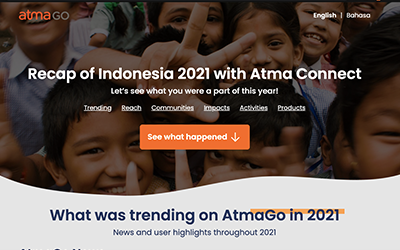
Celebrating All You Helped Make Happen
Happy New Year, Happy Lunar New Year, and thank you so much to all who contributed to our end of the year appeal. Your support is

Farmers Helping Farmers
While Atma Connect originally launched as a mobile app for people to share information and build resilience in disaster-prone areas, the impact is far greater

How Atma and The Nature Conservancy Joined Forces to Share Resources for the Disaster Risk Reduction Community
While headlines from around the globe can seem overwhelming, a certain set of people are too busy to despair — people who specialize in disaster

World’s largest network of changemakers and social innovators selects Atma Connect CEO Meena Palaniappan
Ashoka, the world’s largest network of changemakers and social innovators, has named Atma Connect CEO Meena Palaniappan to its alliance of changemakers as a Special

5 Questions with Atma Connect’s Head of Technology Ardy Satria
In honor of Atma Connect’s 5-year anniversary, we are highlighting our inspiring community including employees, supporters and board members. Meet Ardy Satria, self-described tech guy.

5 Questions with Atma Connect’s Board Chair Lisa Diaz Nash
In honor of Atma Connect’s 5-year anniversary, we are highlighting our inspiring community including employees, supporters and board members. Meet Lisa Diaz Nash, seasoned business

Announcing a New AtmaGo Feature to Help Local Leaders Supercharge Their Impact: Community Room
Atma Connect, the global tech nonprofit helping communities improve their resilience to disasters and respond to ongoing challenges, is all about enabling change from the

Citizen Journalism is Increasing Food Security and Countering Misinformation in Puerto Rico
Image Source: “Ciencia Pa ‘La Gente”. Radioteca.net In Puerto Rico, increasing food security is a top goal. Puerto Rico was vulnerable to food insecurity prior

Building Resilient Communities by Celebrating a Powerful History
“Looking back at Puerto Rican history helps us see that we have always been powerful. Right now with the many challenges we are facing in

5 Questions with Atma Connect’s Field Director – Alfan
In this interview blog series, we are highlighting our inspiring Atma Community including employees, supporters, and board members. Meet Alfan, Atma Connect’s Field Director! Working

Tackling Food Insecurity in Puerto Rico with Atma Go
Community ties are strong in Puerto Rico. This is a place that is built around people getting together and working together. While poverty and food

International Day for Disaster Risk Reduction
Connecting communities & resources with AtmaGo People are more likely to survive disasters and address vulnerabilities when they have good social networks and connections. But

Women leaders are building mutual support in the time of Covid-19
As the Global Pandemic hits certain communities harder than others, people are turning to each other to solve local problems. And, women are on the
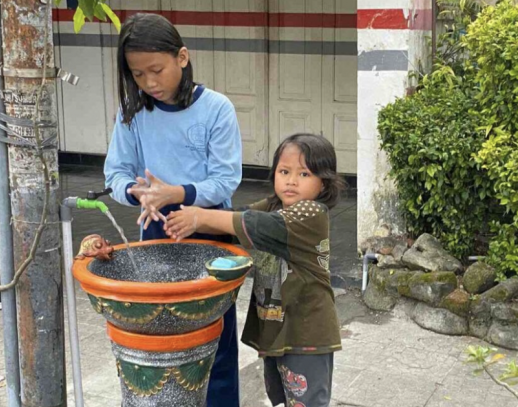
With AtmaGo, communities rise to the challenge of COVID-19
We want to thank you so much for your support, guidance, and partnership as we work together with communities on the front lines of Covid-19
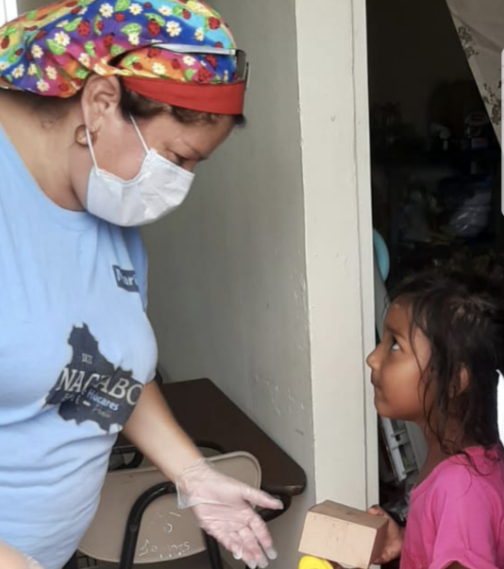
Heroes with Masks – Héroes con Mascarillas
In every crisis, there are heroes. In the Covid-19 crisis Puerto Ricans have praised police, nurses, and doctors by hanging banners and posting memes on

Ramadan and Community in the time of Covid-19: Conversation with Zain Ahmed
“Let’s welcome the blessing Ramadan as a moment to break the chain of transmission of the plague for the sake of personal safety, relatives and



Citizen Journalism Empowers Local Activists in Puerto Rico
On Presidents Day, a circle of women and neighbors came together to learn how to build community resilience through citizen journalism. Citizen journalism, as the

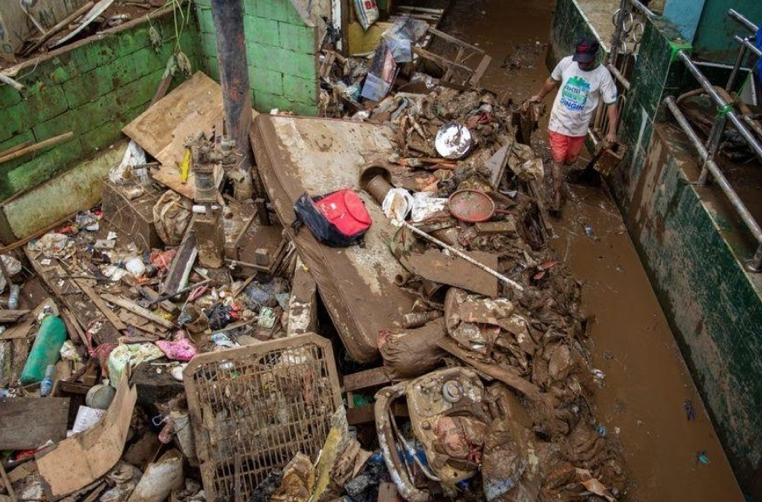
Update on 2020 Flood in the Greater Jakarta Area
Dear Atma Community, My belongings were destroyed during the flooding that struck Jakarta on the first day of the new year. This has been some

Puerto Rico Update on 2020 Earthquakes
Dear Atma Community, I wanted to give you an update on what is happening in Puerto Rico right now, since the earthquakes that left the
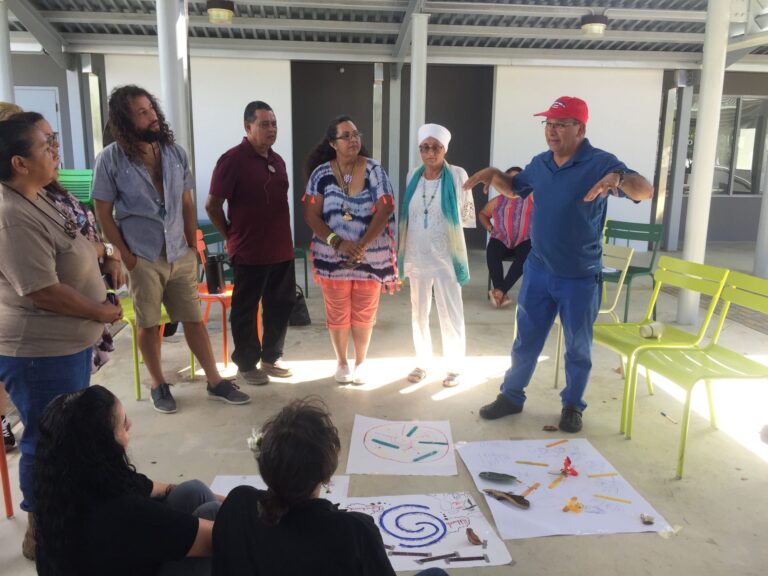
AtmaGo Builds Partnerships Towards Community-Based Resilience in Puerto Rico
We have been working to prepare AtmaGo and our partnerships to bring AtmaGo to Puerto Rico this year. Our Partnerships Coordinator, Natasha, originally from Puerto

Announcing our first Vice President of Growth & Impact – Zev Lowe
We are excited to announce that Atma Connect has hired Zev Lowe as our first Vice President of Growth & Impact. This newly-created role will

How does a startup evaluate impact?
Efforts to quantify the benefit of social program date back at least to Thomas Hobbes, but in the past 15 years there has been a
Atma Ventures to Kenya and Hosts IDEO in Indonesia
As Spring turns to Summer in California, our user-base continues to grow in Indonesia—and our organization continues to take shape as an independent nonprofit. Last month we had over 6,000 active monthly users, and we have reached over 30,000 unique users since our launch.
AtmaGo App Wins IDEO.org’s Amplify Urban Resilience Challenge
Atma Connect—a California-based technology organization focused on connecting and empowering people in the developing world—has won the 2016 Global Amplify Urban Resilience Challenge with their AtmaGo.com urban resilience app. The Amplify Urban Resilience Challenge is a partnership of The Rockefeller Foundation, USAID, the Swedish Development Agency (SIDA), the UK Development Agency (DFID), OpenIDEO, and IDEO.org.
AtmaGo Reaches 20,000 Users—And We Are an Amplify Finalist…
Just a quick update today: AtmaGo has reached 20,000 users in Indonesia! Big thanks to all of our Indonesian staff for driving this forward—and to our new users for creating posts on everything from the recent terror attacks in Jakarta, to jobs, events and so much more.
AtmaGo Reaches Over 10,000 Users!
Since our last update in June, AtmaGo has reached over 10,000 users! Our users and staff in Indonesia deserve a big round of applause.
Along with expanding to new cities in Indonesia and improving our web-based software, we are very happy to report that the Cisco Foundation has pledged to help us develop an Android application next year.
AtmaGo Launches in Two New Cities In Indonesia
In early April, we rolled out a new version of AtmaGo that adds user profiles, improves the navigation and updates the user interface. And since then, activity has been strong! We now have nearly 3,000 active users who are connecting with their neighbors to share vital information. People are using AtmaGo to find water and supplies, post about education and jobs, and report problems from fires and floods, to traffic and crime.
AtmaGo as the Antidote to “Ego Media”
Just a few weeks ago, Meena and Nick were in Jakarta, Indonesia to meet with Atma Connect’s Indonesian staff, talk with users and launch the new version of AtmaGo. Pictured above is a group of key users who came out to tell us what they love about AtmaGo—and how we can improve.
AtmaGo Proves its Worth During Jakarta Floods
“To the citizens and residents of Bukit Duri, do not give up in the face of floods! When the floods come, unplug all cable, save important documents and jewelry, and make your family and yourself secure” — AtmaGo User Comments from February, 2015.
On February 10, the Wall Street Journal reported that heavy rains had inundated the capital city of Indonesia.
Learning From the Field: Expanding the Scope of AtmaGo
Over the past three months, we have been engaged in an intense process of learning from the field—and we have learned a lot! Working with our new Indonesia Field Director, Alfan Rodhi, we have carried out nearly 100 user interviews and tested an early version of the AtmaGo application in several neighborhoods in Jakarta.
Indonesia is a Success Story—but Water Remains a Challenge
As anyone who has turned on a TV or opened a newspaper knows, the world has been suffering a spate of conflicts and challenges of late. So it was a nice change of pace to hear Fareed Zakaria hold up progress in India, reforms in Mexico and the recent election in Indonesia as global “success stories.”
Understanding Urban Water Markets
A tanker truck lumbers into a neighborhood, and people rush to the truck carrying containers of all sizes and colors. A man on a motorbike with a bubble top container in tow winds down narrow alleys in an urban slum. A woman brings over buckets to fill water from a neighbor who has piped water provided by the city. Children carry water containers home from the neighboring community.
It’s too expensive to be poor
I had this realization while working in India in 2010 on a study of climate change and water in cities. My team worked in 5 neighborhoods in a city in the center of India to develop strategies to help cities become more resilient to climate change impacts such as water scarcity and flooding. While documenting the prices people were paying for water from the formal (water utilities) and informal (water market) sectors, I realized that the poorest people were paying far more for water than their wealthier neighbors who were connected to the municipal piped system.
The Challenge: Improving Urban Water Market Transparency
Water is life — and access to it at a fair price is key for health and economic success. But hundreds of millions of people around the globe suffer from water scarcity. A large proportion of people in developing nations live without consistent indoor water service — or are forced to buy drinking water from private vendors. These informal water markets serve millions of people in major cities in nations such as Indonesia, Brazil, India and South Africa. But due to a lack of price information and the inability of customers to communicate their feedback, many of the water vendors can overcharge — with prices reaching 20 to 30 times what other customers may pay
